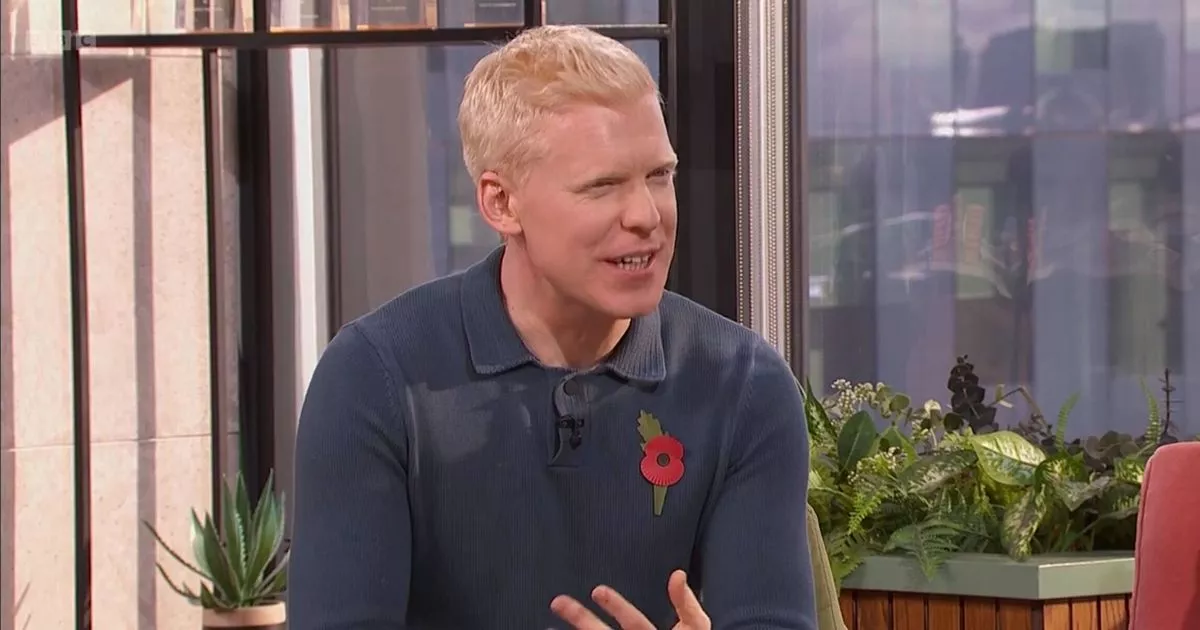Dr Oscar Duke spoke after singer Lauren Jean told of her experiences in the middle of the night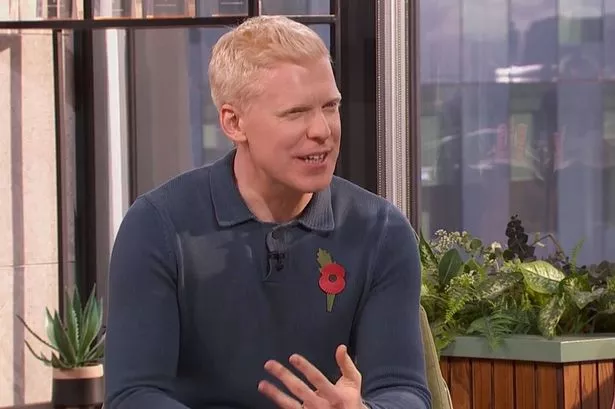 Dr Oscar is a regular on BBC Morning Live(Image: BBC Morning Live)
Dr Oscar is a regular on BBC Morning Live(Image: BBC Morning Live)
A doctor who appeared on BBC Morning Live today (October 29) has urged people to remember a life-saving word that has just four letters. Dr Oscar Duke, a regular on the show, shared the key word during a sit-down talk with singer, Lauren Jean.
Lauren, from Clitheroe, Lancashire, had a stroke on a family holiday when she was just 17. She recalled: “I was on holiday three years ago in Spain. Went to bed – completely normal, nothing at all – and luckily I woke up. I felt like I couldn’t feel one side of my body. So I grabbed my arm to try and get out of bed because I needed the toilet as well. It was around 3am.
“I whacked my head on the bedside table and literally fell straight to the floor. Luckily, my mum was awake and she thought she heard me and my sister fall over so she came in the room and there was blood everywhere.”
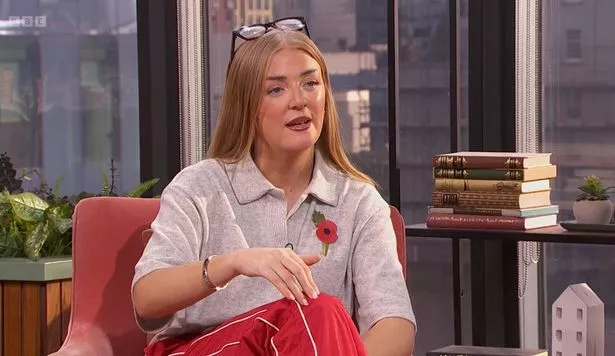 Lauren had her stroke at the age of just 17(Image: BBC Morning Live)
Lauren had her stroke at the age of just 17(Image: BBC Morning Live)
At first, Lauren’s mum assumed she had a concussion, but when she lifted her daughter off the floor, she realised her right side was drooping and knew the signs of a stroke. Lauren said: “They put me in the bath because they thought in the bath I couldn’t roll over there and that it was probably the safest place for me.
“I was choking on my tongue – there were little things that you just don’t think about. Dad went and got the neighbours up and they rang for an ambulance and within 20 minutes I was in the first hospital. They looked at a scan said she needs major brain surgery.”
She was quickly rushed away in an air ambulance and admitted it was frightening with her mum and dad following in a car. She said: “If I didn’t wake up at 3am, then I probably would have died in my sleep.”
Dr Oscar said that Lauren’s family reacted well, stressing that “time is really of the essence and stroke is unfortunately common.” In fact, about 240 people a day wake up and experience the effects of a stroke, he said, adding that around 10 to 15% of people under 50 will have one.
FAST
The doctor continued, adding that if you think someone is having a stroke, remember the four-letter FAST acronym, “which is really important.”
Face weakness: Can the person smile? Has their mouth or eye drooped?Arm weakness: Can the person raise both arms fully and keep them there?Speech problems: Can the person speak clearly and understand what you say? Is their speech slurred?Time to call 999: if you see any of these signs
The doctor said that there “tends to be a drop in the side of your face” so when you ask people to smile or show their teeth, they can’t do that. Someone may also experience arm weakness, so while they may be able to lift their arms up, one arm may feel heavier and fall when lifted.
Slurred speech is another major sign. Lauren said: “My mum kept asking me questions like ‘what colour are my eyes’ and I knew what I wanted to say, but I just couldn’t get the words out. It was frustrating more than anything.” So if you have any of these, calling 999 is key.
Why did Lauren have a stroke?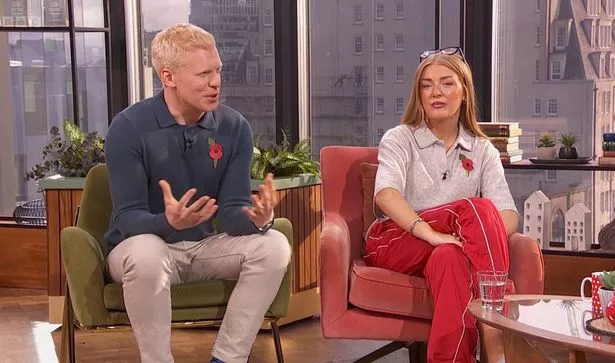 The issue was spoken about on today’s episode of BBC Morning Live(Image: BBC Morning Live)
The issue was spoken about on today’s episode of BBC Morning Live(Image: BBC Morning Live)
Lauren revealed: “I had a PFO, which is a hole in the heart. I had heart surgery two years ago, but I didn’t know until after the stroke. A hole in the heart can lead to a stroke because the clot came from my leg, straight all the way to my heart to the brain.
“They said if I didn’t have a hole in my heart, then I would not have had a stroke, and if I wasn’t on the contraceptive pill. So the two things that caused my stroke were the contraceptive pill and the hole in the heart.”
“The impact of flying and the altitude of flying brought it on quicker”, she added, with doctors not wanting her to fly back home too soon.
What happens if I have a stroke on my own?
Doctor Oscar said you should try to alert anyone in any way possible. He suggests calling 999 or banging on a neighbour’s door. Don’t worry if you cannot talk or you have slurred speech, he said, as call-handlers are equipped to deal with that. He said: “If you’re struggling with your speech, they’re going to try and support you through that and perhaps track where you are.”
Good news
Thankfully, Lauren is doing great now. In fact, she is doing better than doctors thought. Lauren revealed: “After the stroke happened, one thing I really wanted to get into was walking because I got told I would not be able to walk again.
“Getting told you won’t be able to walk again and the chances of you singing is slim. I was like I will be walking again”
Her determination led her to numerous physio sessions and workouts, which allowed her to achieve something brilliant. She proudly said: “I ran the London marathon in April of this year for the British Heart Foundation.”
Signs of a stroke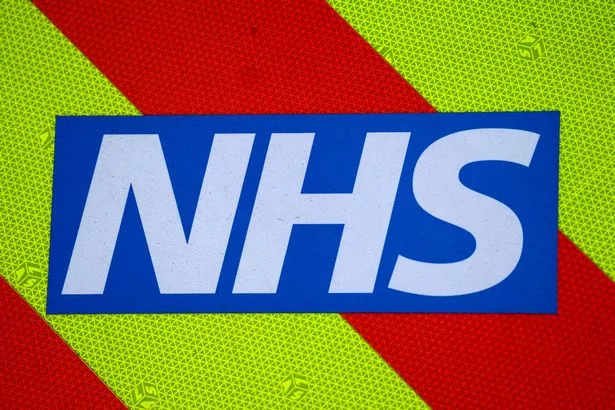 Call 999 and do not delay(Image: Carl Court/Getty Images)
Call 999 and do not delay(Image: Carl Court/Getty Images)
The main symptoms of a stroke can happen suddenly. They may include:
face weakness – one side of your face may droop (fall) and it might be hard to smilearm weakness – you may not be able to fully lift both arms and keep them there because of weakness or numbness in 1 armspeech problems – you may slur your words or sound confused
The easiest way to remember these symptoms is the word FAST. This stands for: face, arms, speech and time to call 999.
There are other signs that you or someone else is having a stroke. These include:
weakness or numbness down 1 side of your bodyblurred vision or loss of sight in 1 or both eyesfinding it difficult to speak or think of wordsconfusion and memory lossfeeling dizzy or falling overa severe headachefeeling or being sick (nausea or vomiting)

